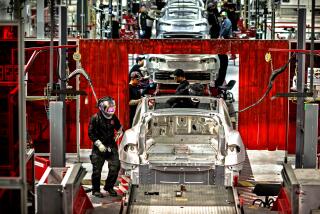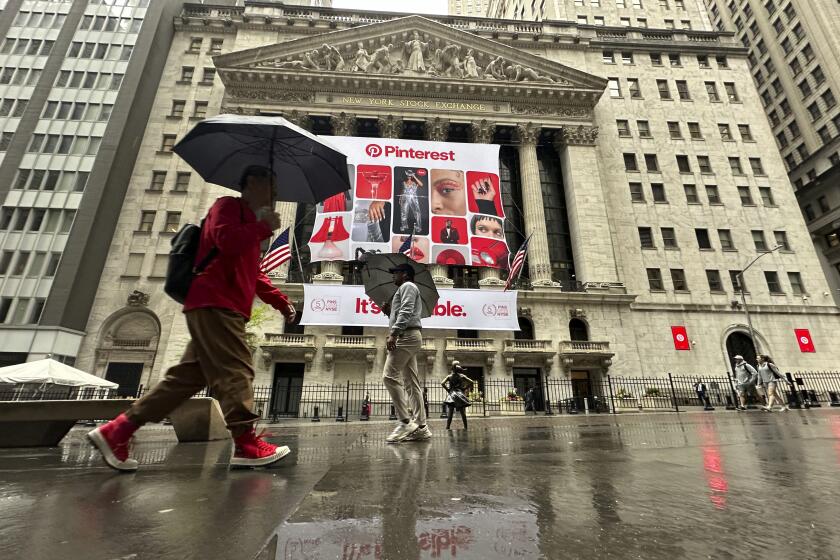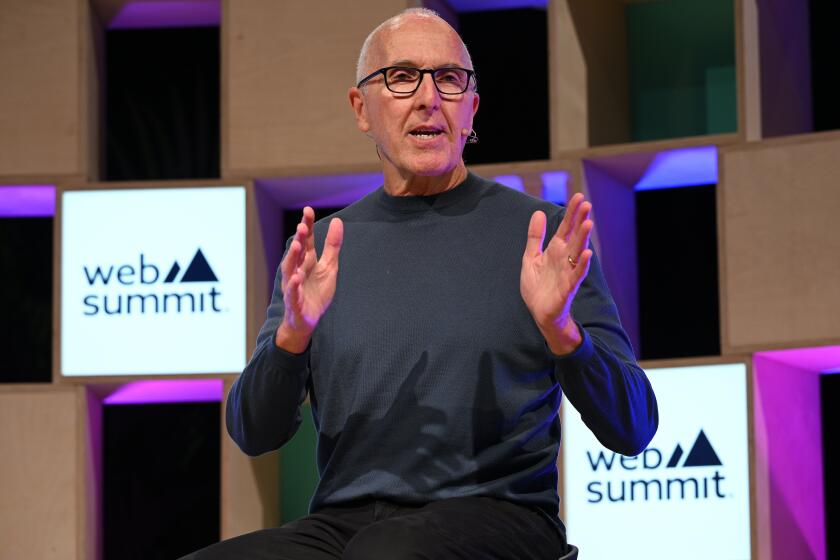Bonus Behemoth: Kingston Enriches Its Workers Again
Continuing to set a stratospheric standard for generosity to employees, Kingston Technology Corp. has handed out $20 million in bonuses at a time when the memory-chip industry is hitting an all-time low.
The payouts--$10 million each in July and August, to nearly 700 employees--is the second round of bonuses that Kingston founders David Sun and John Tu have bestowed since selling 80% of the Fountain Valley computer memory product maker to Softbank Corp. of Japan for $1.5 billion in 1996.
Amid the recent wave of high-tech mergers, stock volatility and industrywide layoffs, Kingston’s willingness to distribute hefty bonuses--despite its own drop in sales revenue--reflects a radical corporate philosophy, analysts said.
“This is the sort of good news you’d hope to see from time to time to offset the appearance of greed in the business world,” said Raymond E. Miles, professor emeritus at the Haas School of Business at UC Berkeley. “Unfortunately, this is a totally unique story.”
Sun and Tu set up a $100-million fund in 1996 for workers to share in the sale’s proceeds. In early 1997, $38 million was distributed, with $62 million more set aside for future bonuses. Last year’s bonus checks ranged from $2,000 for recent hires to six digits for some.
Kingston officials declined to state the range of the most recent bonuses, which were based on seniority, pay and performance.
“Two years ago, we made a commitment to redistribute the wealth,” said Gary MacDonald, senior vice president of sales and marketing at Kingston. “If you only take care of people during the good times, that’s called generosity. But we didn’t really want to promote this because it looks like self-serving publicity.”
Other U.S. companies have helped their employees become wealthy. Microsoft Corp. spawned thousands of millionaires in its ranks. But most often, these cases deal with stock-option programs that allow employees to buy their company’s stock at a discounted price and sell it later for a profit.
“As the market goes up and down, the question is how much a stock’s really worth,” said Theresa Welbourne, a professor who studies employee compensation trends at Cornell University.
One notable exception is Lincoln Electric Co., the Cleveland-based maker of welding products. Known for its productivity incentive program, the company last November said it would pay year-end bonuses totaling a record $72 million. The size of the payouts reflected Lincoln Electric’s rising profits, officials said.
Analysts note that privately held Kingston has felt the effect of plunging prices of chips used to create memory for PCs, the result of a market glut. Weaker-than-anticipated computer sales and the Asian economic crisis have put the brakes on the chip-equipment industry.
In 1995, chip makers sold about $41 billion worth of memory, according to the research firm Dataquest. This year, the semiconductor industry is projected to sell only about $13 billion worth worldwide.
That means Kingston’s margin of profit on each sale is shrinking. Last year, the company did about $1 billion in sales, according to George Iwanyc, industry analyst with Dataquest.
“We are at a time when we’re seeing a lot of companies struggle and cut back their staffs. Not Kingston,” Iwanyc said. “Right now, Kingston is the leader in its market and [the company’s] not pressed to take those steps.”
Kingston and its shy founders gained national attention in the days after the first round of bonuses were announced in 1996. Television news crews flocked to the building and the receptionists handled more than 1,000 calls per hour.
Many employees found themselves fielding calls from car salesmen and distant family members seeking financial help. And hundreds of job seekers flooded the company’s fax machines with resumes.
Both Sun, 48, and Tu, 58, were uncomfortable with the attention. Since founding the company in 1988, the duo has relied on an unorthodox--but effective--attitude toward business. They never relied on venture capital, refused to sell stock in their company, sealed deals with a handshake and rejected sterile offices in favor of toy-covered cubicles in the center of the company’s sales floor.
More important, they have forged unusually strong bonds with their staff by instilling a sense of respect and collaboration between staff and management.
Before the generous bonuses began, the company’s employee turnover rate was already low. Since then, a couple of dozen employees have left to start their own businesses or go back to school.
“We realized that a lot of people used the first bonus to take care of other people,” MacDonald said. “It’s time for people to take care of themselves, and for us to make sure they feel they have enough of a financial buffer during these market conditions.”






